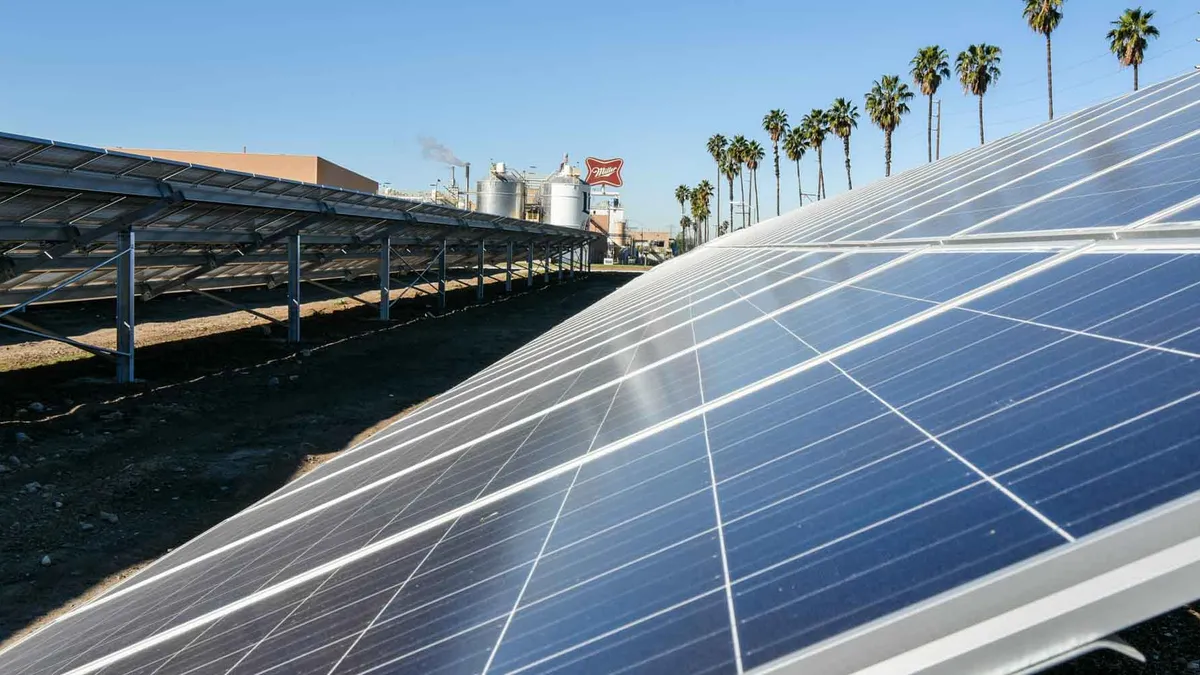Dive Brief:
- The California Energy Commission (CEC) issued a $9 million grant to energy equity nonprofit The Energy Coalition and electricity tech firm Community Electricity, for a project that aims to provide locally produced renewable energy at-scale to disadvantaged communities in Los Angeles County.
- The 28,000-resident Bassett-Avocado Advanced Energy Community (BAAEC) in the San Gabriel Valley will serve as the "site host" of the community-scale prototype, which will distribute energy services on a "blockchain backbone." The system will consist of seven main components:
- An app for community members to promote decarbonization
- A smart community solar and storage system to offset annual electricity load
- A campus microgrid resilience hub with clean back-up power
- A network and virtual power plant integrating 50 single-family homes with solar and battery storage to demonstrate a Blockchain community network pilot
- A mobile grid that includes a community-operated electric vehicle (EV) van-pooling service and a network of EV fast-charging stations
- A smart pollution sensor network to monitor emissions
- A mobile living laboratory to measure the impact of those decarbonization initiatives
- Implementation of the $20 million project is expected to begin in June with a completion target of 2023. The state grant is from California's Electric Program Investment Charge (EPIC) Program, which supports clean energy research.
Dive Insight:
A report prepared for CEC in January 2019 underlined an issue that many disadvantaged communities in California face: While the state has made tremendous progress in upgrading its buildings to reduce emissions, it is more difficult to do so in poorer areas as residents often do not have the money or authority to complete retrofits themselves. Yet retrofitting buildings in disadvantaged communities could mean fewer residents are eventually displaced, according to the report.
There is often a lack of community engagement around clean energy projects, which means "only the most aware and knowledgeable residents have the availability of incentive programs 'on their radar,'" the report said. And while there may be people with knowledge of incentive programs, it can be tricky to apply for them, something the report said is "amplified" in disadvantaged communities "where education, language barriers, or both can inhibit knowledge transfer."
This project looks to change those patterns. In a statement, Luis Felipe Cano, CEO of Community Electricity, said it looks to be a "community-scale decarbonization strategy," with residents invested in their energy use and how to cut consumption. The app could be a useful tool to help with that, although with the digital divide still a real issue throughout some of the more disadvantaged parts of America, its accessibility will be key.
The use of blockchain could also be an intriguing test case for a technology that promises much in the smart city space but is acknowledged by many to still be in the evaluation stage. Already, South Burlington, VT uses blockchain to record property transactions, while Dubai is leaning on the technology in its bid to be a completely paperless city by 2021. A blockchain integration could mean house-to-house energy trading so people can give their excess energy to their neighbors or put it back on the grid, further encouraging the use of renewables.
Cano said he is confident that this model can be replicated elsewhere. There are around 2,000 similarly disadvantaged communities in California alone that could benefit and Community Electricity is also looking at replicating it in other states, he said.












